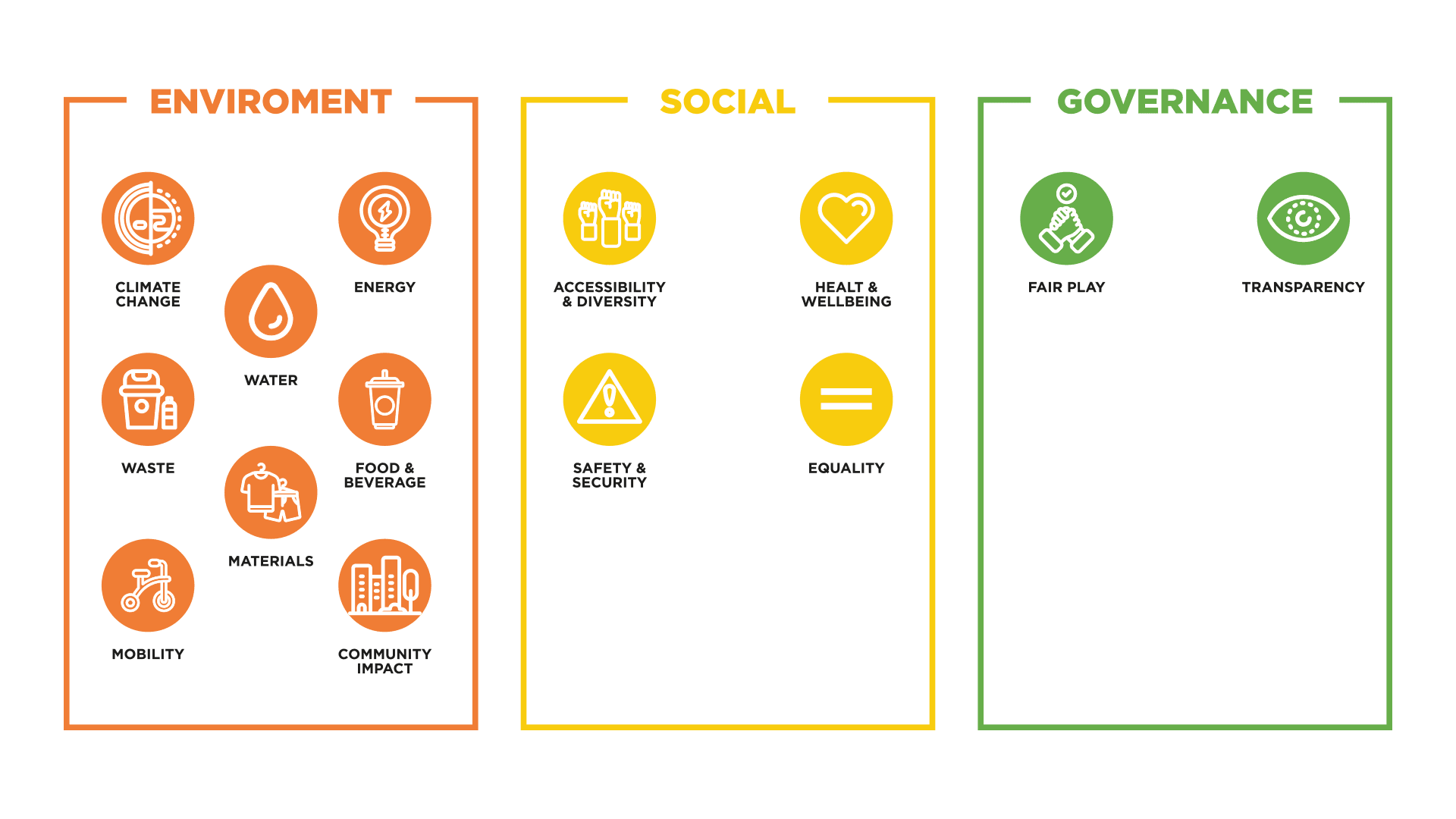The HERO TO ZERO sustainability programme aims to protect the environment the HERO SÜDTIROL DOLOMITES takes place in. It also contributes to achieving the UN SDGs (Sustainable Development Goals) to protect the planet. The initiatives are inspired by the 17 United Nations Goals and the Union Cycliste Internationale (UCI) sustainability guidelines used when organising their events.
THE HERO SUSTAINABILITY APPROACH: ESG
The HERO Südtirol Dolomites’ Organising Committee referred to the UCI sustainability guidelines for cycling events to plan its HERO TO ZERO programme. It implemented 20 tangible actions across three areas: environment, society, and governance. These areas provide a vast overview of the relevant sustainable factors needed to organise a sports event.
The Organising Committee uses the UCI Sustainability Impact Tracker and the GCI CO2 Calculator to measure the event’s impact. These useful tools deliver data which can be assessed objectively and compared over time. The platforms measure the event’s sustainability by analysing and calculating CO2 emissions, and assessing all three areas mentioned above by analysing all social initiatives and other sustainable activities implemented by the Organising Committee.

 THE ENVIRONMENT [SDG 13]
THE ENVIRONMENT [SDG 13]
Sustainability and the environment go hand in hand. The HERO Südtirol Dolomites outlined the following key topics to protect our planet.
- Exclusively use renewable energy (green)
- Progressive phase out of helicopter for TV coverage in favour of drones
- Choosing local suppliers to reduce transport emissions
- Promoting the use of local products and providing for alternative catering solutions
- Reducing waste and water consumption
- Using existing buildings rather than temporary ones
- Selecting partners and sponsor with a sustainability strategy who share our same sustainability values
- Selecting partner hotels which work to reduce their carbon footprint
- Encouraging teams, fans, and the press to use trains rather than planes or cars.
- Promoting the use of e-vehicles or e-bikes among volunteers
 RESOURCE MANAGEMENT
RESOURCE MANAGEMENT
 WASTE MANAGEMENT [SDG 12]
WASTE MANAGEMENT [SDG 12]
The aim of this holistic approach is to reduce and recycle waste as much as possible and raise awareness about the matter among participants and locals alike.
 FOOD AND BEVERAGE [SDG 2,3]
FOOD AND BEVERAGE [SDG 2,3]
We collaborate with third party catering companies to guarantee participants, volunteers, and everyone else can enjoy healthy and quality food during the event. Suppliers are encouraged to use local products, reduce waste, and provide reusable cups.
 MATERIALS [SDG 12]
MATERIALS [SDG 12]
We aim to reduce our need for materials by, for example, renting materials and using sustainable or reusable materials.
 GREEN MOBILITY [SDG 3,13]
GREEN MOBILITY [SDG 3,13]
Mobility is key if want to reduce C02 emissions. We have studied campaigns which encourage participants, fans, third parties, and volunteers to opt for smart and green mobility solutions to ensure the event is the least impactful for local communities.
 SOCIETY [SDG 10]
SOCIETY [SDG 10]
Sustainability goes hand in hand with the environment and society. We aim to improve the event’s accessibility and inclusivity, fight gender discrimination, and increase awareness about health and safety among the local communities.

